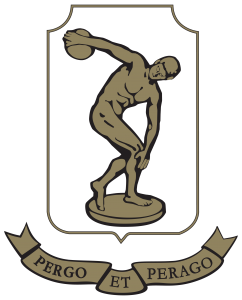
11 Biology
11BIO Course DescriptionTeacher in Charge: Brent Salmon.
Prerequisites

There are no prerequisites for Level 1, but preference will be given to those who pass all the Year 10 end of year examinations.
Students may take 11CPH or 11SCI to complement their selection of 11BIO. They should be aware that there may be a small amount of crossover learning if you choose 11SCI in addition to 11BIO.

Biology is the study of living things and their interactions with each other and their environment.
• Biological skills
• Animal systems
• Micro-organisms
• Genetics
• Research


Course Overview
Term 1
* Carry out a practical investigation with direction. This will involve the development of a fair test on respiration and use of pulse oximeters.
* Demonstrate understanding of biological ideas related to Micro-organisms.
Students learn how to grow micro-organisms on agar plates using aseptic technique. They will learn about the variety of microbes and the way that they reproduce, as well as their uses in the food industry.
Term 2
Continued...* Demonstrate understanding of biological ideas related to Micro-organisms.
Students learn how to grow micro-organisms on agar plates using aseptic technique. They will learn about the variety of microbes and the way that they reproduce, as well as their uses in the food industry.
* Research and report on marine biology issue.
Students learn how to think critically about contemporary issues in biology such as marine reserves. Field trip to a local marine laboratory.
Term 3
Continued...* Research and report on a biological issue.
Students learn how to think critically about contemporary issues in biology such as marine reserves.
* Mammals as consumers.
Students learn about the similarities and differences in the way that mammals obtain nutrition.
Term 4
Continued...* Mammals as consumers.
Students learn about the similarities and differences in the way that mammals obtain nutrition.
* Demonstrate an understanding of genetic variation
Students learn about the diversity of life at the genetic level. Students learn how genetic diversity can be increased or decreased and how populations adapt over time.
Assessment Information
| Paper | Description | Type | Weighting |
|---|---|---|---|
| Paper 11BIO1 | Respiration investigation | Internal | 10.00% |
| Paper 11BIO2 | Micro-organisms | Internal | 20.00% |
| Paper 11BIO3 | Research project | Internal | 20.00% |
| Paper 11BIO4 | Examination | Internal | 50.00% |
Biology 2, Science 2 (internally assessed)
Career PathwaysPhysiotherapist, Acupuncturist, Personal Trainer/Exercise Professional, Registered Nurse, Agricultural/Horticultural Scientist, Agricultural Technician, Agricultural/Horticultural Consultant, Paramedic, Anaesthetist, Pathologist, Veterinary Nurse, Zoologist, Beekeeper, Aquaculture Farmer, Zookeeper, Marine Biologist, Arborist, Medical Physicist, Meat/Seafood Process Worker, Audiologist/Audiometrist, Microbiologist, Biochemist, Biotechnologist, Clinical Physiologist, Physician, Science Technician, Podiatrist, Medical Laboratory Scientist, General Practitioner, Gynaecologist/Obstetrician, Psychiatrist, Forestry Scientist, Health Services Manager, Radiation Oncologist, Ophthalmologist
Contributions and Equipment/Stationery$32 - Scipad: Microbes, Mammals as consumers, Genetic Variation;
$30 Marine Studies Field Trip